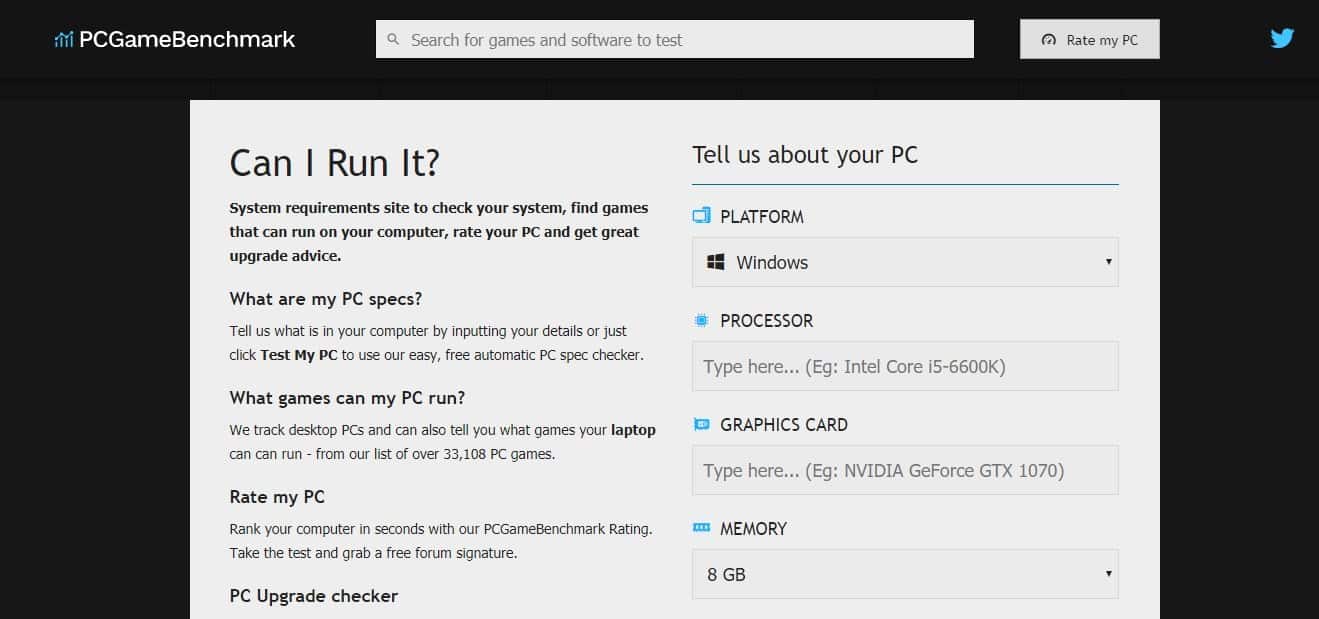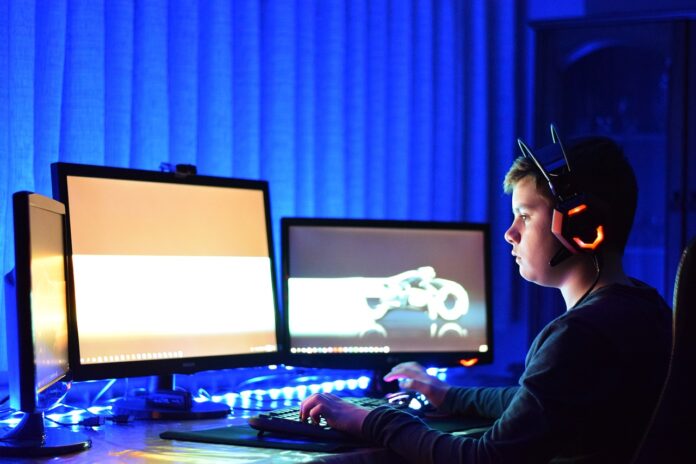PC gaming presents a complexity distinct from console gaming. For those operating with a laptop equipped with modest graphics hardware or an old PC, it becomes crucial to verify if your system meets the requirements of a game before making a monetary commitment. Moreover, PC Game Compatibility test is very important to check your gaming performance.
Fortunately, the landscape has evolved positively for PC gamers, reducing the necessity for frequent hardware upgrades. A gaming PC designed several years ago can typically manage the latest games.
Sometimes, a simple upgrade to a newer graphics card might suffice to allow smooth gameplay on more contemporary titles. However, the scenario differs for older PCs and laptops not designed for gaming.
A crucial note upfront: Should your computer always need integrated Intel graphics rather than an AMD graphics card or a dedicated NVIDIA, you’re likely to encounter difficulties running the latest, visually intensive games.
Most laptops not explicitly marketed as gaming devices utilize Intel-integrated graphics, known for their cost-effectiveness and lower power consumption.
In contrast, gaming laptops often incorporate both Intel-integrated graphics and a dedicated graphics card, dynamically switching between them depending on the task at hand.
Playing even the newest games on the lowest graphics settings might be challenging if your system relies solely on Intel graphics. If you are a competitive gamer, then you must have a great computer. Check out more info about eSports and check the gaming sets the players use: thunderpick.io/en/esports
How do you check if your computer can run a PC game? This guide explains how to check if your computer is up to the task quickly.
1. Start with the Basics: System Requirements
Before diving into the technical details, it’s essential to familiarize yourself with the game’s system requirements. Developers provide these specifications as a guideline to ensure optimal performance. Typically, you’ll find two sets of requirements: minimum and recommended.

- Minimum Requirements: These are the bare essentials needed to run the game. Meeting these will get the game running, but performance might be better.
- Recommended Requirements: Aim for these specs to experience the game in all its glory. Meeting or exceeding these ensures smoother gameplay with better graphics and performance.
2. PC Game Compatibility: Know Thy Machine
Now that you know the game’s requirements, it’s time to assess your computer’s hardware. Here’s a quick rundown of what to check:
- Processor (CPU): Look for the type and speed of your processor. If the game requires a quad-core processor, make sure you have one.
- Memory (RAM): Check the amount of RAM installed on your system. Games often demand a minimum RAM capacity, so ensure your system meets or surpasses this.
- Graphics Card (GPU): Your GPU is crucial for gaming visuals. Identify your graphics card model and compare it to the game’s requirements. Integrated graphics may struggle with resource-intensive games, so a dedicated GPU is preferable.
- Storage: Confirm you have sufficient storage space. Games nowadays can be pretty hefty, often requiring tens of gigabytes. Ensure your hard drive has enough room for the game to install.
3. Use System Information Tools: Windows and Mac
Both Windows and Mac operating systems provide built-in tools to gather detailed information about your system.
- Windows: Open the Run dialog (Win + R) and type “msinfo32.” This opens the System Information window, providing comprehensive details about your hardware.
- Mac: Navigate to “About This Mac” in the Apple menu. Click on “System Report” to access detailed information about your Mac’s hardware.
Several online tools can simplify the process. “Can You Run It” is a popular choice. Visit their website, search for the game, and run a quick scan. The tool analyzes and compares your system to the game’s requirements, providing a straightforward answer.
For a more in-depth examination of your GPU and CPU, consider using GPU-Z and CPU-Z. These free tools provide real-time monitoring of your graphics card and processor, offering details like clock speeds, memory usage, and more.
PC Game Compatibility For Enhancing Your Gaming Experience
If your computer falls short of the game’s requirements, all hope is not lost. Consider upgrading specific components to meet or exceed the recommended specs.
- Upgrading RAM: Adding more RAM can significantly improve performance, especially in memory-hungry games.
- Graphics Card Upgrade: If your integrated graphics aren’t cutting it, investing in a dedicated GPU can transform your gaming experience.
- Processor Upgrade: Upgrading your CPU might be necessary for games that demand a powerful processor. Ensure compatibility with your motherboard before making a purchase.
Even if your system doesn’t meet the recommended specs, you can enjoy the game by tweaking settings. Lowering the resolution of graphics settings or turning off resource-intensive features can enhance performance on less powerful systems.
Final Thought
This guide lets you quickly assess whether your computer can handle a PC game. Whether you meet the requirements or need a few upgrades, understanding your system’s capabilities is the first step toward an optimal gaming experience.
So, check those specs, make any necessary upgrades, and dive into the world of gaming without hesitation!





